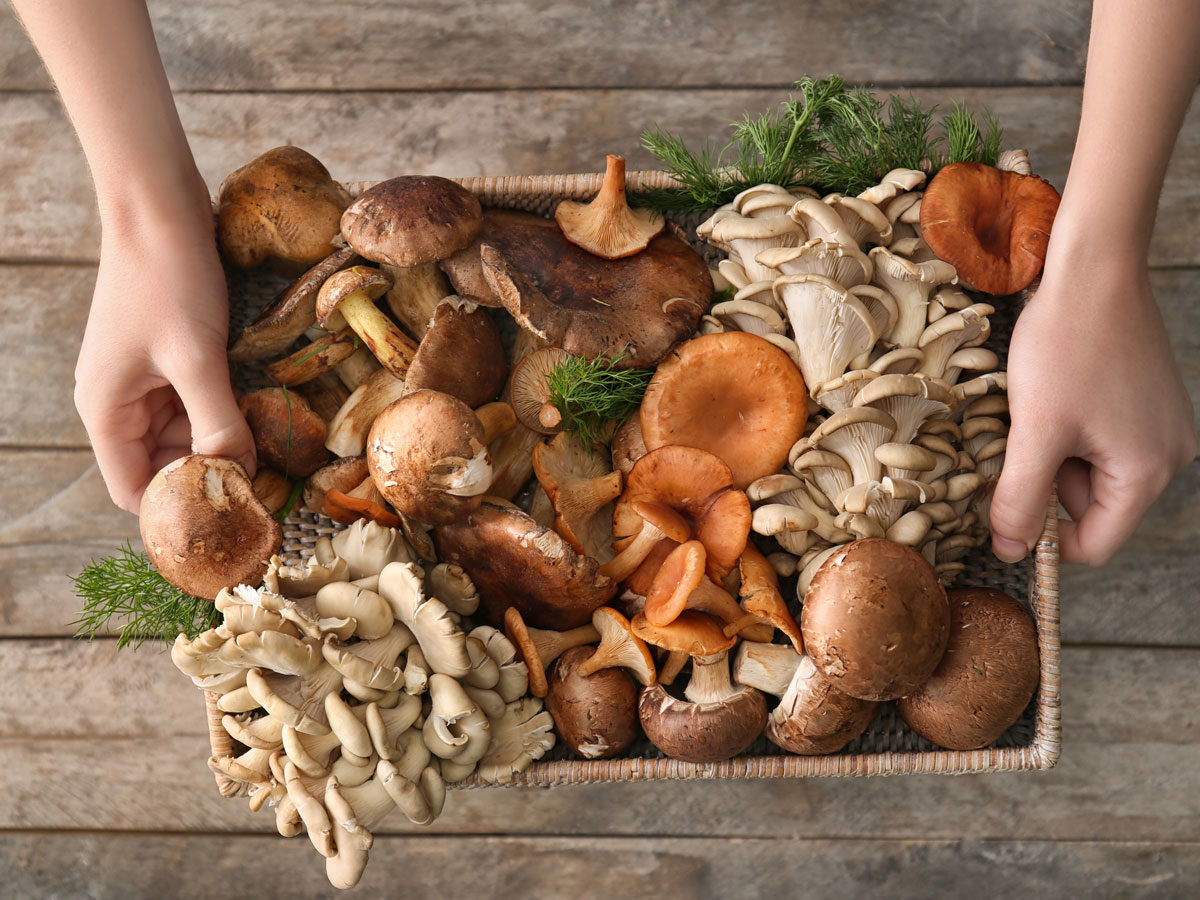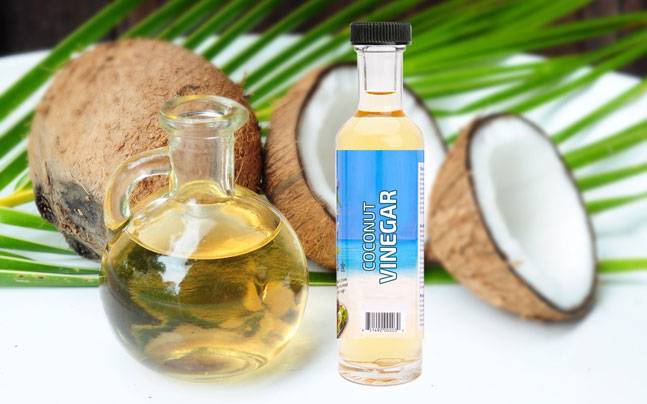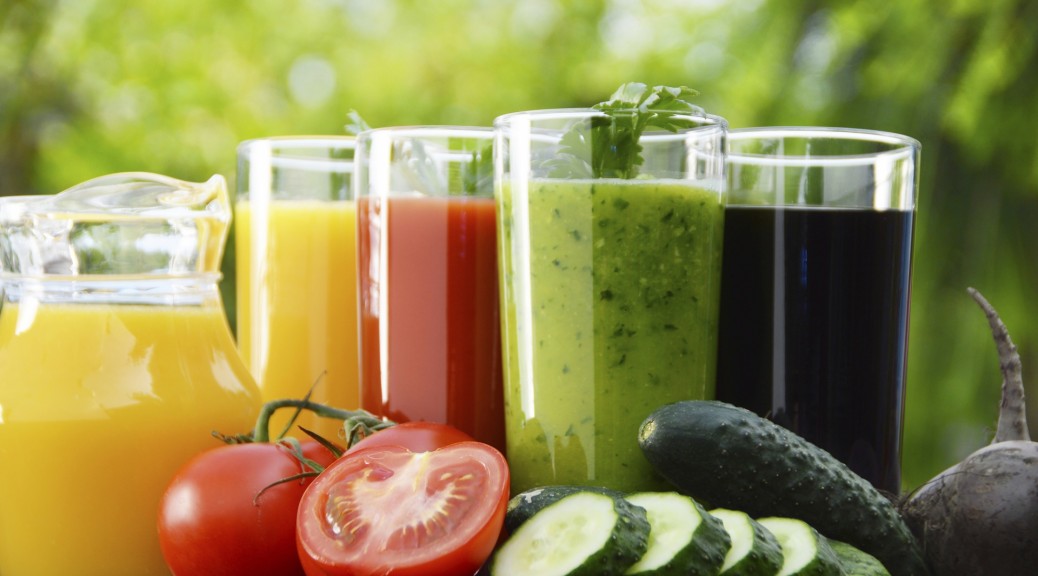
Edible fungi mushrooms have been consumed by humans for centuries. These nutrient-dense foods have innumerous varieties and although their popularity depends on the price and availability, mushrooms are generally considered healthy. The popularity of edible mushrooms also depends on the absence of toxins and how enticing the taste and smell of certain mushroom species is. From the most common white mushrooms to the prized and rare truffles, a range of mushrooms are consumed around the world, not just for their creamy, earthy flavour, but also because of their numerous health benefits, that many of us are aware of.
Mushrooms have increasingly come to be categorised as vegetable, although some vegetarians may still not consider consuming them, due to their soft, meat-like texture. They are added to numerous dishes like pastas, pizzas, burgers, patties, quiches and omelettes etc., but not all of these dishes are very healthy. However, there are some healthy ways of including mushrooms in your diet, without adding empty calories to your meals. Mushrooms can enhance the taste of any dish they are added to, due to their creamy flavour. Let's look at some of the health benefits of mushrooms, before we move on to healthy ways of adding them to our diets.
Mushroom Nutrition Facts And Values
White mushrooms are extremely low in calories- a 100 gm of the fungi packs just 22 calories! They also contain negligible fat and cholesterol, but are rather rich in protein (3.1 gm per 100 gm) and healthy carbohydrates (3.3 gm of carbs per 100 gm), according to data by United States Department of Agriculture. They also contain iron, magnesium and Vitamins C, D and B-6. They are also rich in potassium, which is an important nutrient for maintaining heart and brain health, as well as promote weight loss.
Mushroom Benefits
They help maintain health of the nervous system, due to the presence of potassium in them.
1. Mushrooms may also help bring blood pressure levels under control, due to the presence of high levels of potassium and low levels of sodium.
2. Mushrooms may even help diabetics regulate blood sugar levels, due to the presence of chromium in them.
3. Mushrooms are great for promoting weight loss, on account of being low in calories and rich in protein. They also have good water content.
How To Add Mushroom To Your Diet In Healthy Way
1. Creamy Sauces
Mushrooms can make your sauces and gravies creamy and eliminate the need for you to add cream or milk. Add a paste of mushrooms instead of your regular cream to your pastas or any other dish and enjoy them guilt free!
2. Mushroom Coffee
A lot of people are now adding mushroom supplements and powders to their morning coffee, to reap the health benefits of these nutritional powerhouses. Coffee purists may crinkle their noses at the prospect of adding mushroom to their cuppa, but it may be a quick way of adding it to your diet.
3. Mushroom Soups
Make soups using mushrooms or add them to your soup broth to make them more nutrient-rich.
4. Mushroom Stir-Fry
A side of vegetable along with your favourite protein makes for a complete and wholesome meal. You can stir-fry mushrooms, along with a number of vegetables including broccoli, beans, sweet peppers etc., and enjoy along with your choice of white or red meats.

Coconut has gained popularity around the world as a 'superfood.' The oil from coconut has been particularly hailed for its treasure trove of healthy fats. Southeast Asians have been enamoured with coconut and all coconut products for a long time now. Now, that the western world is also catching up with the fibrous fruit's wonders, coconut and coconut products are much in demand. Even as coconut oil has become a popular healthy cooking oil choice for health freaks, coconut milk is also being used as a non-dairy milk alternative in a number of dishes. However, there's one coconut product that is yet to gain its rightful place in the spotlight - coconut vinegar.
Coconut vinegar is used in a number of dishes of Goan cuisine as a souring agent and a flavour -enhancer. It's also used in preparing the desi Goan alcoholic drink - coconut feni. It is milder in taste than the more popular apple cider vinegar and has a cloudy, white appearance. Coconut vinegar is used for preparing traditional Goan delicacies like vindaloo and sorpotel. It can also be prepared at home and can be used in a number of ways. But before we go into the process of preparing the vinegar, let's take a look at some of the benefits of coconut vinegar.
Coconut Vinegar Benefits:
1. Regulates Blood Sugar
Coconut vinegar contains acetic acid, which is said to regulate blood sugar levels and improve insulin sensitivity, especially when consumed after a carb-rich meal.
2. May Promote Weight Loss
Coconut vinegar maybe a good addition to a weight loss diet as it may curb hunger pangs and promote satiety. This benefit of coconut vinegar is also credited to the presence of acetic acid in it.
3. Promotes Digestive Health
The fermentation process that the coconut water undergoes makes the finished product rich in probiotics, which promote gut health and also boost immunity.
4. Regulates Blood Pressure
Coconut vinegar is said to be rich in potassium, which is a mineral that is key to regulating blood pressure and promoting heart health. It may also reduce levels of triglycerides in the blood.
How To Make Coconut Vinegar At Home:
Coconut vinegar is made by fermenting coconut water or the milky translucent liquid inside coconut shell. Here's the step-by-step process of preparing coconut vinegar at home:
1. Take some coconut water and filter it into a pan.
2. Heat the water and add the sugar to it. Stir the mixture until all the sugar is dissolved.
3. Allow the mixture to cool and once it's completely cool, pour it into a glass container. Cover the container lightly and keep it in a dark place for about a week.
4. This will turn the liquid alcoholic. Add some mother of vinegar to this solution. Mother of vinegar is a substance that contains cellulose and acetic acid bacteria. This bacteria can turn alcohol into acetic acid with the help of oxygen.
5. After adding the mother vinegar, allow the mixture to sit for four to twelve weeks, during which time it will turn into vinegar.
Coconut vinegar has multiple culinary uses, which are similar to other vinegars. If you are prone to frequent gastric distress or acidity, you should not consume vinegar as it is highly acidic. Otherwise, may consume it after diluting it with water. Consult your doctor before adding this to your diet.

All health and nutrition experts as well as doctors recommend only breast milk for infants as it is considered the complete meal for the baby. Breast milk is said to have antibodies that are important for the baby's immune system to fight off bacteria and viruses. This is why it is said to be imperative that mothers feed their babies in the initial few months after birth. A new study has further shed light on why human breast milk is better for the babies than cow's milk or baby formula. The study has found that the presence of a small molecule called glycerol monolaurate (GML) is the reason why breast milk has anti-inflammatory and antimicrobial properties. The study revealed that the molecule is present in much larger concentrations in breast milk as compared to bovine milk.
The study report titled, "Glycerol Monolaurate Contributes to the Antimicrobial and Anti-inflammatory Activity of Human Milk" was published in the journal Scientific Reports. The study demonstrated the GML concentration in breast milk was 3000 micrograms per millitre, as compared to just 150 micrograms per millitre in cow's milk. Infant formula milk had no GML presence whatsoever, said the study. The researchers also tested the action of GML against bacteria namely Staphylococcus aureus, Bacillus subtilis, Clostridium perfringens, Escherichia coli. It was found that human breast milk was the most anti-microbial against the bacteria tested.Furthermore, the researchers also found that when GML was removed from the milk, there was a loss of antibacterial activity against pathogenic elements.
The study report described GML as a "fatty acid monoester with broad antimicrobial and anti-inflammatory properties". The report further said, "The antimicrobial properties of GML and free fatty acids extend to nearly all Gram-positive bacterial species except certain lactobacilli, bifidobacteria, and enterococci." Additionally, the molecule was also found to be effecitve against pro-inflammatory processes.The study concluded by saying, "Collectively, our data suggest that human milk is both inhibitory to pathogen growth and exhibits anti-inflammatory activity with both activities in part dependent on GML. In contrast, bovine milk and commercial formula lacked or had greatly reduced GML and exhibited neither antimicrobial nor anti-inflammatory properties."

We know that losing weight is not an easy feat. In order to lose weight, one has to follow a strict routine, which includes maintaining a healthy balanced diet, regular workout, yoga and what not! Even if you are determined to lose weight and follow a strict diet, there may be times when cravings for sweet foods may strike like a thunder that you would find impossible to control. The quick results with minimal efforts of these crash diets may lure you for a while, but one must understand that these methods or diets may work at first, but may not help you in long run. Therefore, it is important to add all food groups to your diet and focus on calorie intake of the day to ensure sustainable weight loss. Carbonated and fizzy drinks are full of empty calories that could wreak havoc on your weight loss goals. Hence, it is always better to drink home-made, low calorie drinks instead. Vegetable and fruit juices are one of the best ways to add nutrients to your daily diet that may help you lose weight in longer run. Pick vegetables and fruits that are naturally low in sugar and carbohydrates as they may further help you shed weight naturally.
Here Are 3 Low-Cal Juices That You Can Easily Make At Home To Lose Weight:
Tomato Juice For Weight Loss
Tomatoes are very low in calories and carbohydrates. According to the United States Department of Agriculture (USDA), 100 grams of tomatoes contain just about 18 calories and 3.86 grams of carbs, which makes it a perfect bet for those on a calorie-restricted weight loss diet. Moreover, the fruit has high water content.
All you have to do is to take two cups chopped tomatoes and beetroot, and 3 tablespoon of lime juice. Blend all the ingredients in a blender. You may add salt for taste. Stir well and pour into a tall glass.
Carrot Juice For Weight Loss
Carrots are packed with fibre, both soluble and insoluble. Fibre takes the longest to digest, keeping you full for longer time. Including carrots in daily diet may accelerate your weight loss process. According to the United States Department of Agriculture (USDA), 100 grams of carrots have 41 calories and 3 grams of fibre. Hence, adding carrots to your weight loss diet will accelerate your weight loss programme.
Take 2 cups diced carrot and beetroot, half cup water and 2 table spoon amla juice. Blend the ingredients in a mixer and pour it in a tall glass. You may add a pinch of salt and a few mint leaves for taste.
Apple Juice For Weight Loss
Apple is a low calorie fruit. Apples contain about 50 calories per 100 grams, as per USDA; meaning you can have as much of this low calorie fruit as you like without feeling guilty.
Take 2 cups chopped apple, 1 pinch cinnamon powder and half cup diced beetroot. Blend the ingredients in a mixer and pour it in a tall glass. You may add salt and black pepper for taste.
These are just some of the best low-calorie juices that you can include in your diet for healthy weight loss. However, consult your nutritionist before adding anything to your diet.
Remember, it's a long race to the finish line, but the results are bound to be worth it!
Monsoons are here in full swing! The joy of bingeing on a spicy, freshly roasted corn cob in this amazing weather is above all. More brownie points if the corn cob is generously smothered with lemon juice and masala! Roasted corn cob, or bhutta, not only tastes amazing but is also a healthy snack option. However, this healthy delight might turn out to be problematic for some, especially if you follow it up with a glass of water. According to Ayurveda Expert, Dr. Ashutosh Gautam, "One should avoid drinking water immediately after having bhutta as it can lead to a variety of stomach woes. It may lead to gastric issues and stomach pain."
Here's why you should avoid drinking water after having bhutta:
Many people complain of flatulence and severe stomach ache when they consume water and bhutta together. This happens due to a specific reason. "Drinking water after having bhutta can interrupt the digestion process to a great extent. Doing so slows down the digestion process. Corn contains complex carbs and starch and consumption of water over it can lead to a release of gases in the stomach, which may cause flatulence, acidity, and severe stomach pain," shares Dr. Ashutosh. If all this while you were clueless as to why such a thing was happening to you, you can now blame the combination of bhutta and water for the same.
In order to avoid such a condition, it is advised to maintain a considerable time gap between eating bhutta and drinking water. "The ideal time gap should be at least of 45 minutes," suggests Dr. Ashutosh. Other than this, you should opt for bhuttas that are smothered with lemon juice, as lemon facilitates digestion and makes the overall digestion process smoother and effective. During the monsoon season our body is quite vulnerable to diseases as the overall immunity takes a dip. Considering roasted corn cob is a street food delicacy, it must be consumed fresh and hot. In order to reap maximum nutritional benefits of bhutta, consume it immediately. Storing it for long hours may give rise to harmful bacteria, which can ultimately lead to stomach-related issues.
So, the next time you end up going to that bhutta wala stall to savour this monsoon delight, keep the above-mentioned things in mind and save yourself from stomach discomfort.










